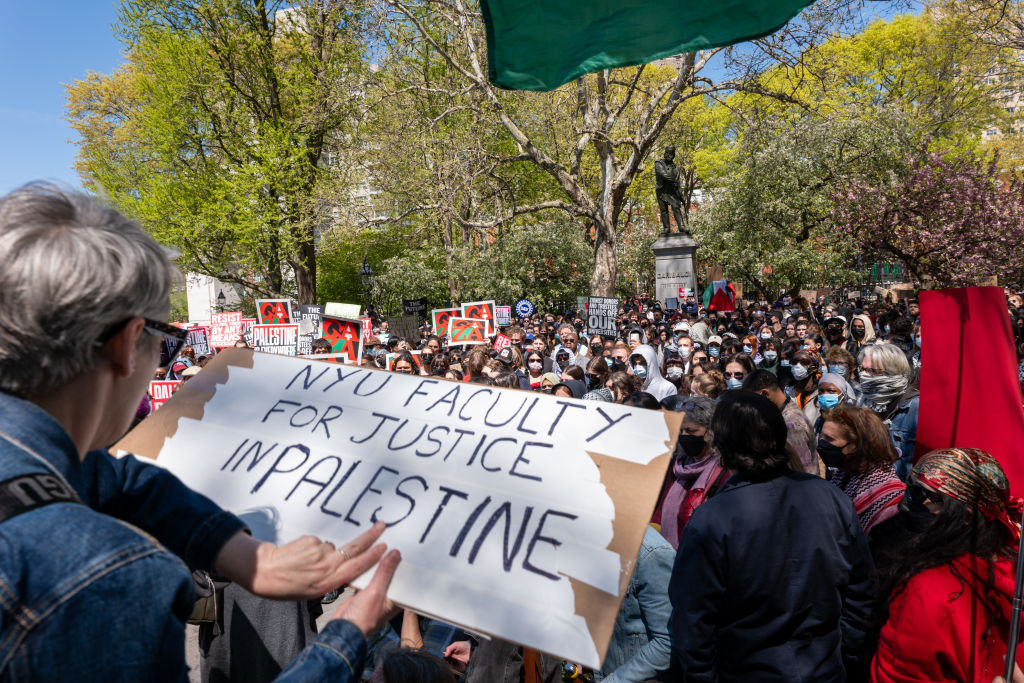
A new report released by the AMCHA Initiative on Sept. 26 concluded that Faculty for Justice in Palestine (FJP) “played a pivotal role in the unprecedented explosion of anti-Israel unrest and antisemitism that continues to grip many U.S. campuses.”
The report investigated “more than 100 schools most popular with Jewish students from Oct. 7, 2023 to June 30, 2024” and found that FJP was established on 55% of these campuses and that many of them “were directly involved with anti-Zionist student organizations and academic departments in organizing events and authoring statements.” “Nearly 70% of FJP chapters cosponsored events and/or co-authored statements with one or more student organizations, a collaboration that not only provided academic legitimacy to the student organizations and helped propel their anti-Zionist activism, but also assisted the FJP groups in spreading their own messaging among student activists,” the report stated. “In addition, more than one-quarter (26%) of FJP groups cosponsored events and/or co-authored statements with academic departments, which provided additional institutional approval and support for FJP’s activism.”
The report also found that schools with an FJP chapter likely had anti-Israel protest activity that lasted 2.5 times longer and 9.5 times more days those that didn’t have an FJP chapter. In schools with FJP chapters, encampments were likely to last 4.7 times more days; student governments at schools with FJP chapters were 4.9 times more likely to pass a resolution calling for their schools to divest from companies that conduct business with Israel.
Notably, the report found that “schools with an FJP group were 7.3 times more likely to have incidents involving physical violence targeting Jews than schools without an FJP group” and were also “3.4 times more likely to have incidents involving death threats or threats of physical harm targeting Jews.”
FJP chapters, the report explained, were established after the Palestinian Campaign for the Academic and Cultural Boycott of Israel (PACBI), a founding member of the Palestinian BDS National Committee, called for their formation and were thus “explicitly created to vigorously promote PACBI’s academic boycott of Israel (academic BDS) on their campuses and in their classrooms” and “provide direct support to anti-Zionist student groups, particularly Students for Justice in Palestine (SJP), facilitating their activism and embedding BDS goals into campus life.”
The report concluded by stating that AMCHA has “never seen faculty organize to this extent, within a national network that is supported by an international movement with the single political goal of bringing down a sovereign nation, and harming its inhabitants and those who support them on U.S. campuses, including their own students and colleagues. This is an extremely alarming development, which shows no sign of diminishing.” It urged college and university administrators to “establish robust safeguards and enforcement mechanisms to prevent faculty from using their academic positions and departmental affiliations to promote politically motivated advocacy and activism that directly targets their own students and colleagues for harm” and for lawmakers to “consider establishing legislation that would withhold government funding of schools that permit faculty to engage in such behavior.”
AMCHA has “never seen faculty organize to this extent, within a national network that is supported by an international movement with the single political goal of bringing down a sovereign nation, and harming its inhabitants and those who support them on U.S. campuses, including their own students and colleagues. This is an extremely alarming development, which shows no sign of diminishing.”
AMCHA Initiative Director Tammi Rossman-Benjamin, who is also one of the lead researchers in the report, said in a statement. “These faculty-led groups are inciting anti-Zionist activism among students, propelling academic boycotts, and actively fostering an environment where Jewish students are physically attacked and threatened. The correlation between these faculty groups and violent antisemitic acts cannot be ignored. Without immediate intervention from university administrations and policymakers, the situation will only worsen, leaving Jewish students and faculty vulnerable to escalating violence.”







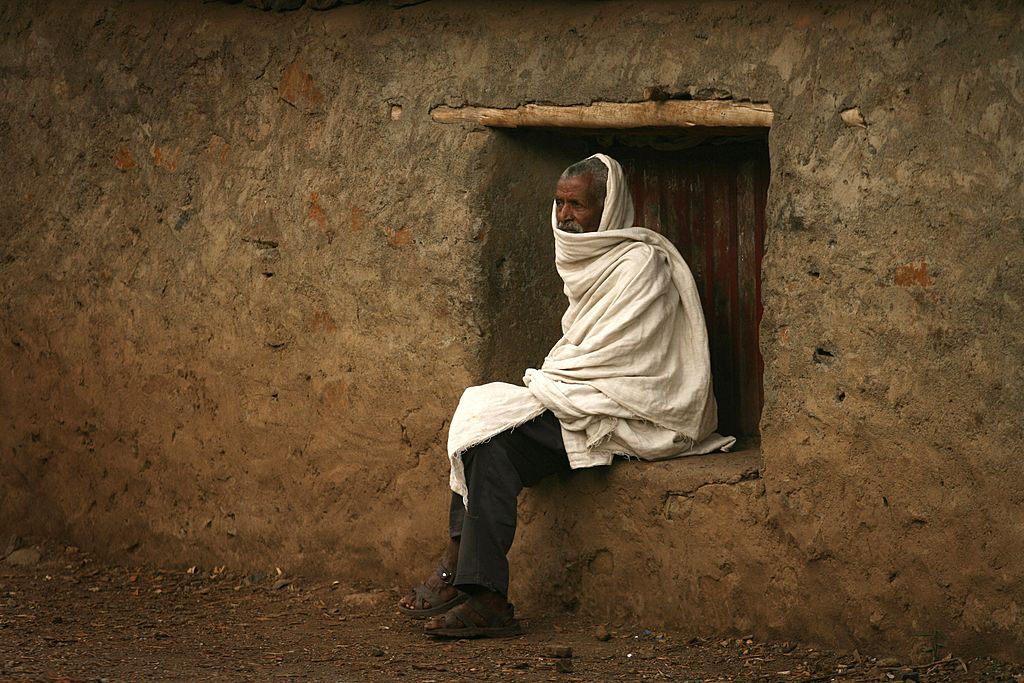

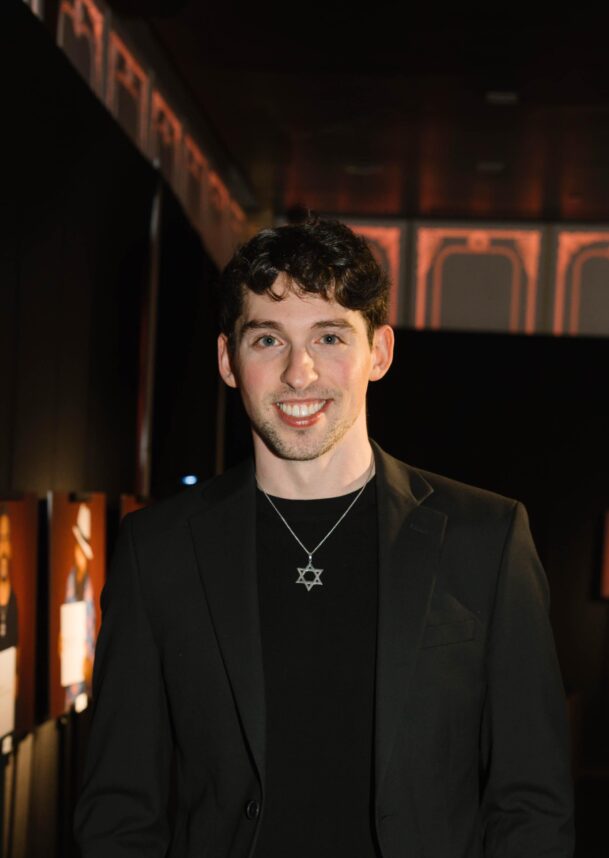
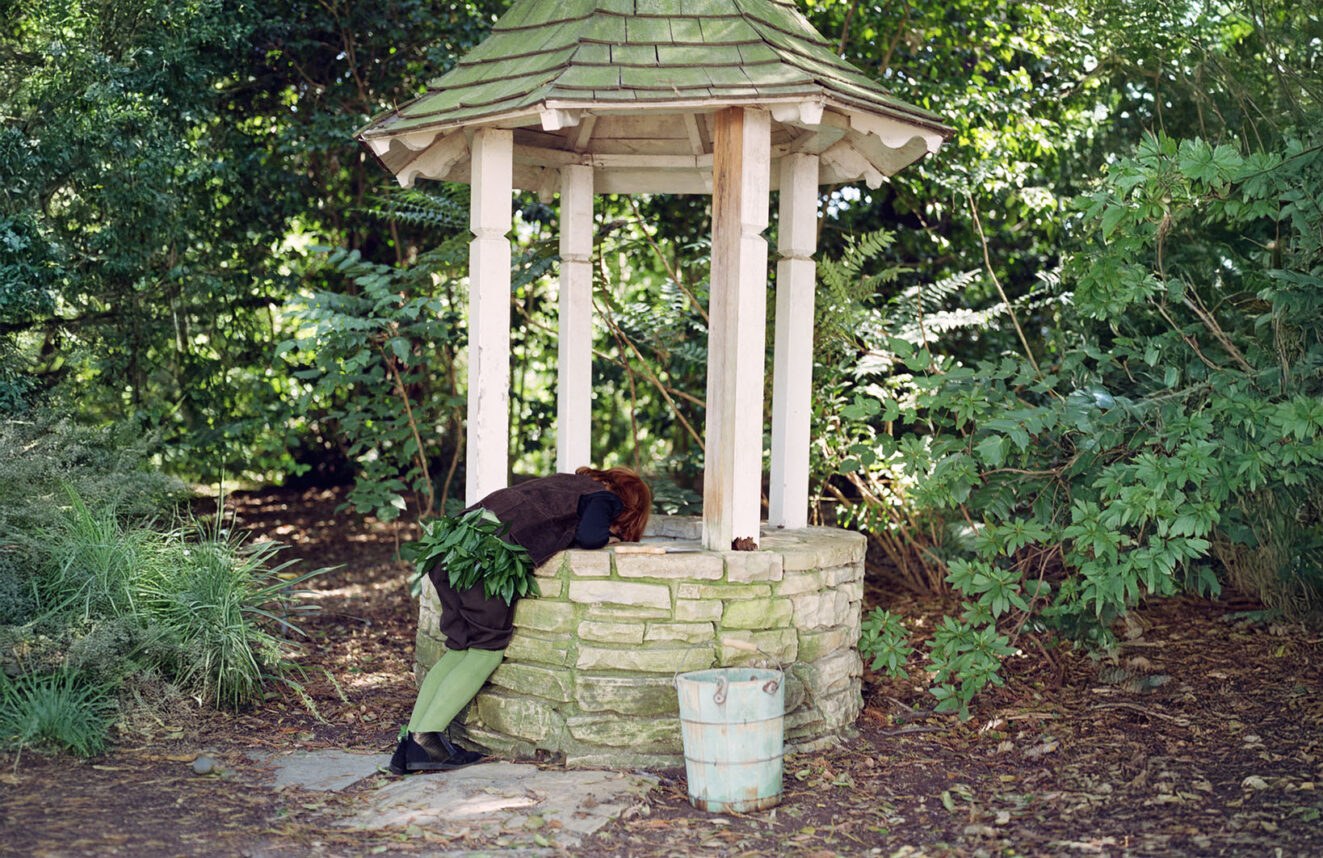



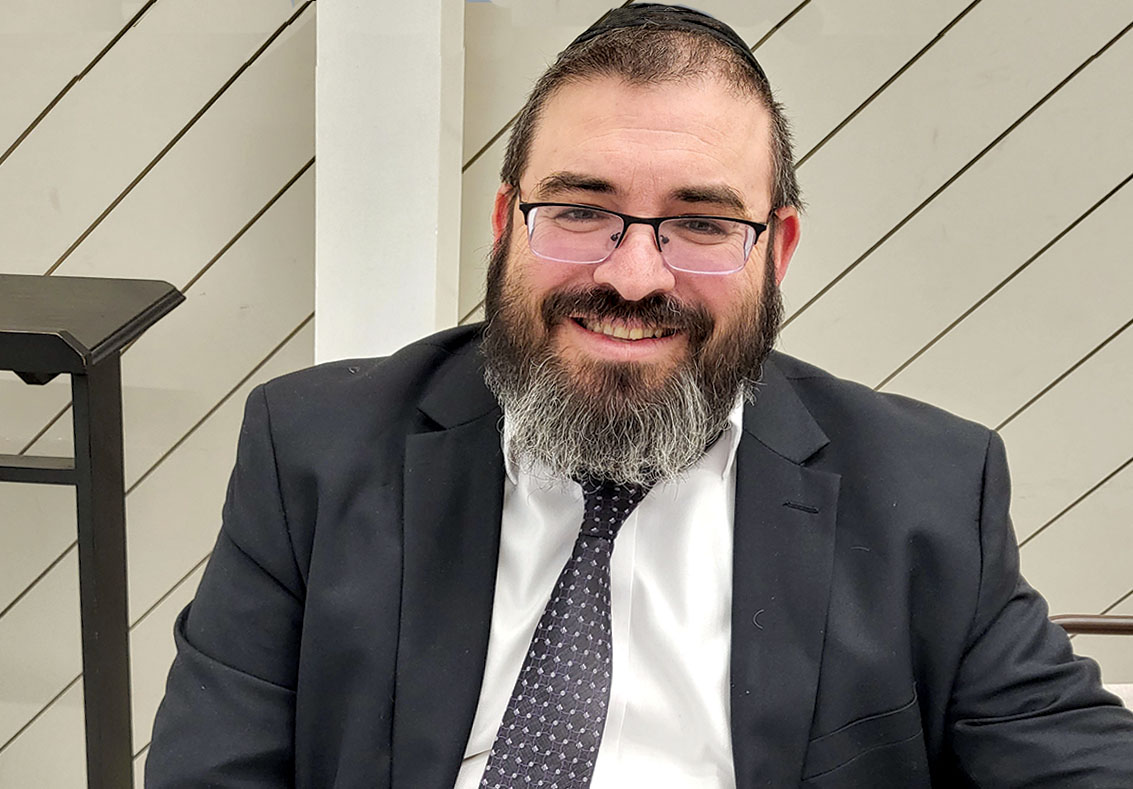







 More news and opinions than at a Shabbat dinner, right in your inbox.
More news and opinions than at a Shabbat dinner, right in your inbox.